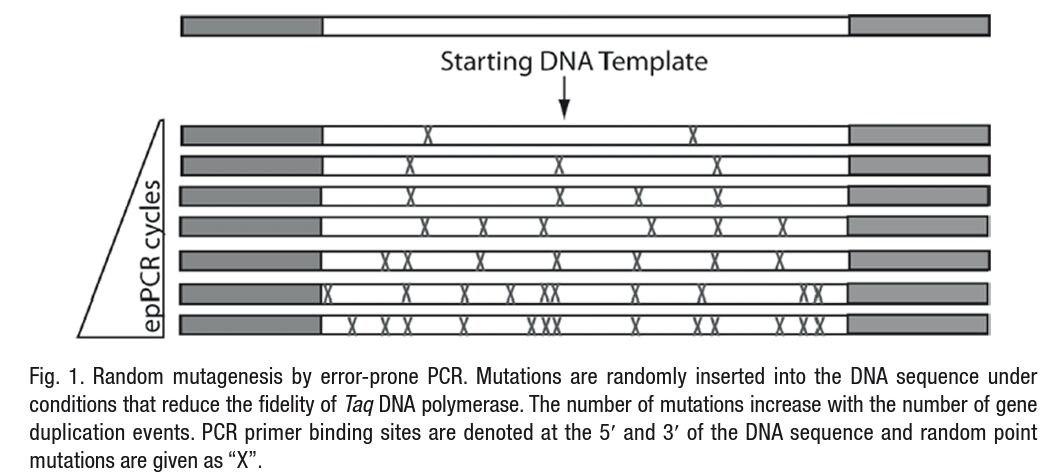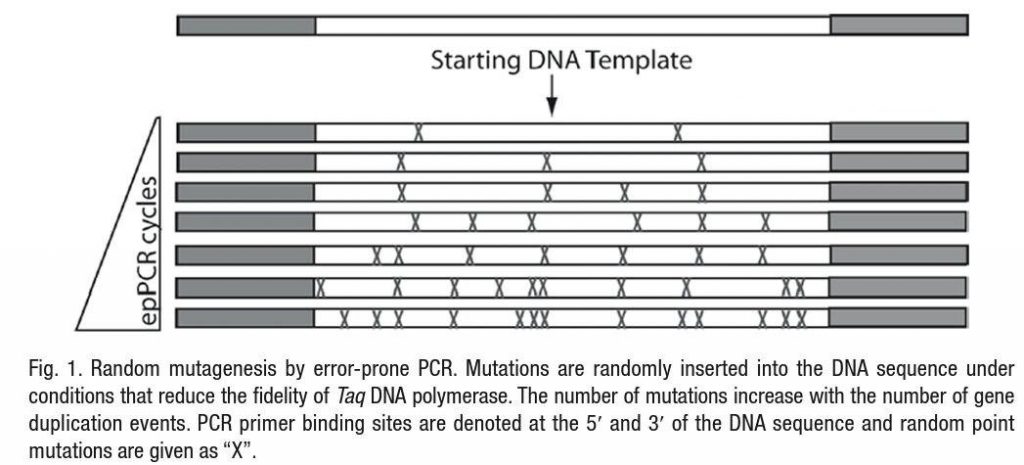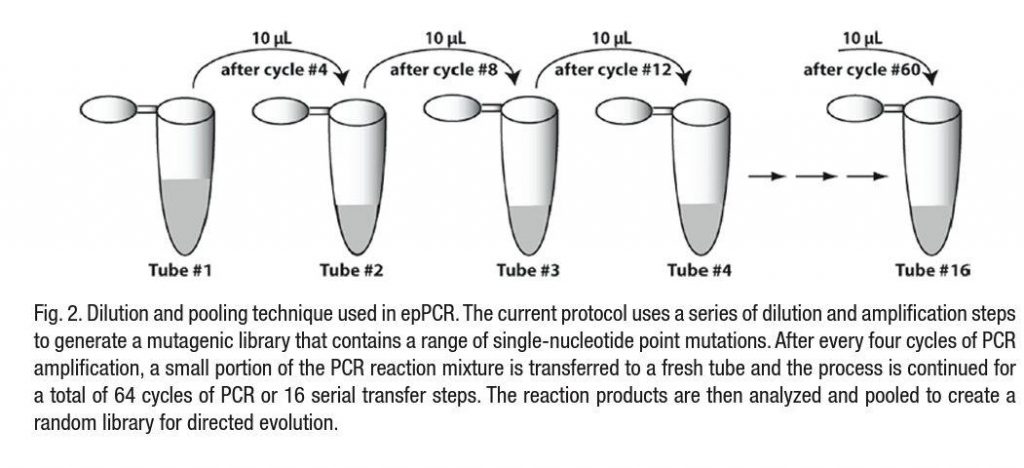
Error prone PCR

PCR مستعد خطا یک روشی برای random mutagenesis است که بوسیله آن در قطعه های DNA جهش تصادفی ایجاد شود. این روش براساس PCR می باشد که یک تکنیک استاندارد در بسیاری آزمایشگاه های زیست شناسی مولکولی است. در PCR مستعد خطا میزان درست کار کردن Taq DNA polymerase به وسیله ی تغییر در ترکیب بافر تنظیم می شود.
در این شرایط پلیمراز در جفت کردن بازها در طول سنتز DNA اشتباه می کند که نتیجه ی آن ایجاد خطا در رشته های تازه سنتز شده می باشد. با کنترل ترکیب بافر می توان فرکانس اشتباه را تنظیم کرد. برای این تکنیک مهم می باشد که از Taq DNAپلیمرازیاستفاده شود که خاصیت proof-reading نداشته باشد.

This technique, also referred to as test-tube evolution
error-prone PCR is the most common method for creating a combinatorial library
based on a single gene
PCR protocol was modified to include:
(1) increased concentration of Taq DNA polymerase;
(2) increased polymerase extension time;
(3) increased concentration of MgCl2 ions;
(4) increased concentration of dNTP substrates; and
(5) the reaction was supplemented with MnCl2 ions
Under these conditions, the rate of random mutagenesis is ~2% per nucleotide position per PCR reaction. Libraries produced by this method contain a large number of A → G and T → C transitions that bias the resulting sequences toward high GC content.
نویسنده : سعید کارگر



